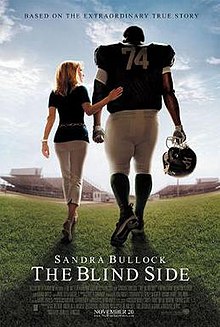ENTRY 3
Identifying Bias
ITEM 1:
-
- Scene in the
movie: Michael Oher is not Leigh Anne’s son. She just offered Oher a place to
sleep when she was aware of his intention of sleeping outside. Slowly, Michael becomes
a member of the Tuohy family, even as Leigh Anne's rich friends wonder what
she is doing. One even suggests that her teenage daughter Collins not safe
around him, much to Leigh Anne's disgust.
- Analysis:
Leigh Anne’s friends discriminated Michael Oher for his breeding. They assume
that he is just like other black street kids who have been receiving little
education and care; therefore, they come to a conclusion that he will only do
harm to Ms. Leigh’s daughter. They just know that he used to be a street kid,
but they simply don’t care about other facts.
ITEM 2:
Pol Pot Khmer Rouge – the terrified
genocide of Cambodia

During their three-year,
eight-month, and 21-day rule of Cambodia, the Khmer Rouge committed some of
the most heinous crimes in modern history: An estimated two million people
(21% of Cambodia's population) lost their lives. Many of these victims were
brutally executed; many more died of starvation, exhaustion, and disease. The
population is suspiciously youthful (50% is under the age of 15).
ð Analysis:
- Discrimination.
- The facts of a true genocide in Cambodia exhibit Pol
Pot’s extreme discrimination towards intellects. He aimed at launching an
agricultural reform where peasants are the main labour force. Intellects should
be of no help. Therefore, all intellects are forced to take up work in the
agricultural field or else they will be killed.
- Source: http://en.wikipedia.org/wiki/Khmer_Rouge
Buying
Styles Among Racial/Ethnic Groups Differ
Buying
brands that support social causes are particularly important to Hispanics,
Asians and African Americans adults. They are 57%, 30% and 44% more likely
than the average adult, respectively, to say they expect the brands they buy
to support social causes. Hispanics are the group most likely to “often seek
the advice of others before making a purchase.” And, Blacks/African Americans
place the greatest importance on brand name (+86%).

Source: GfK MRI
Survey of the American Consumer, Fall 2010
-
Stereotype
-
Analysis: The statistics misrepresents the
data as we cannot tell those 53% or 30% or 44% are collected from how many
people’s ideas and the scale of the survey. They do not include the numbers
of Hispanics or Asians that were interviewed to give the answers. Therefore,
they do not have enough information to conclude whether Blacks/African
Americans do place greatest importance on brand name or not.
|

Item 3:
Trả lờiXóaI think it is assumption because of the lack of information (how many people’s ideas, the scale of the survey-like you wrote)